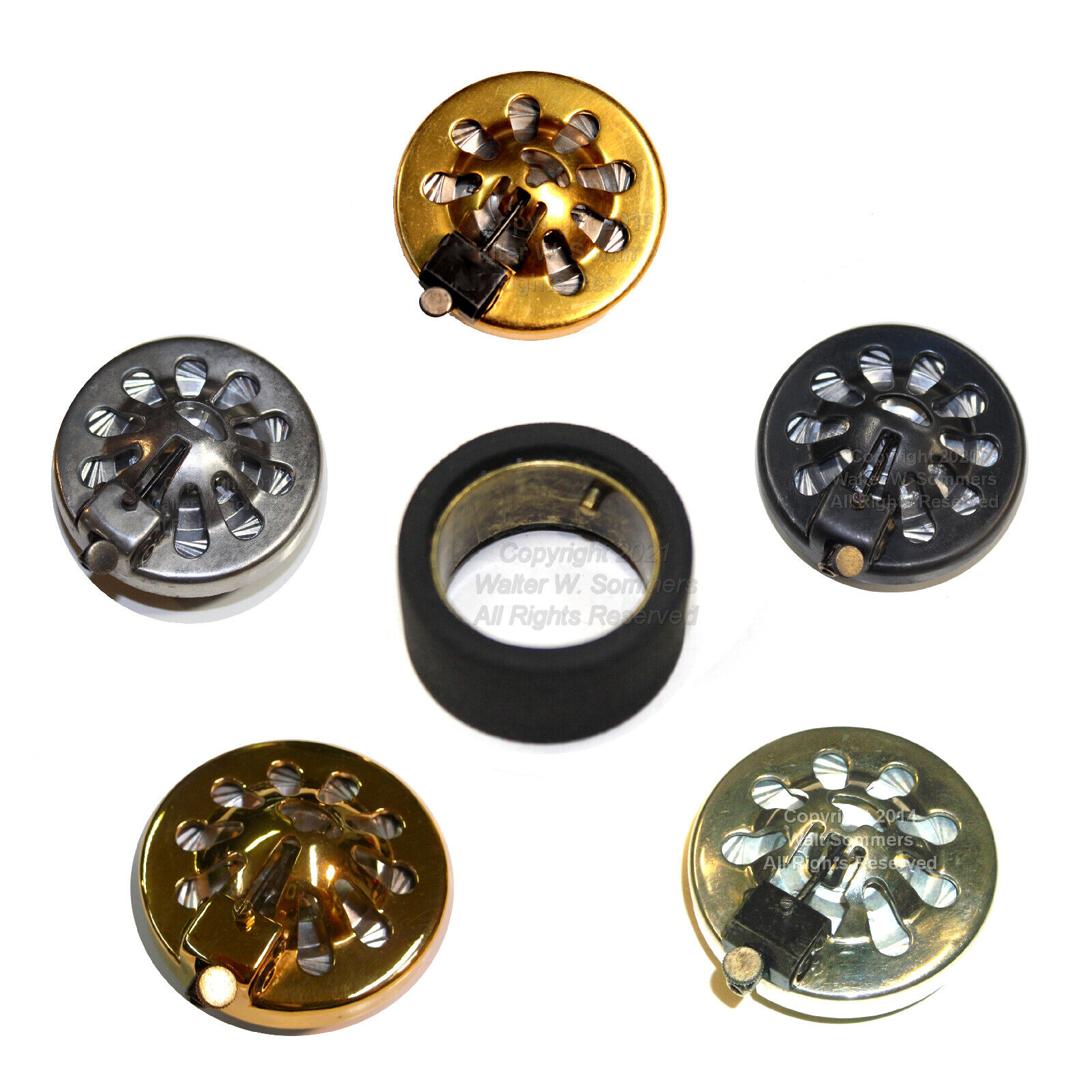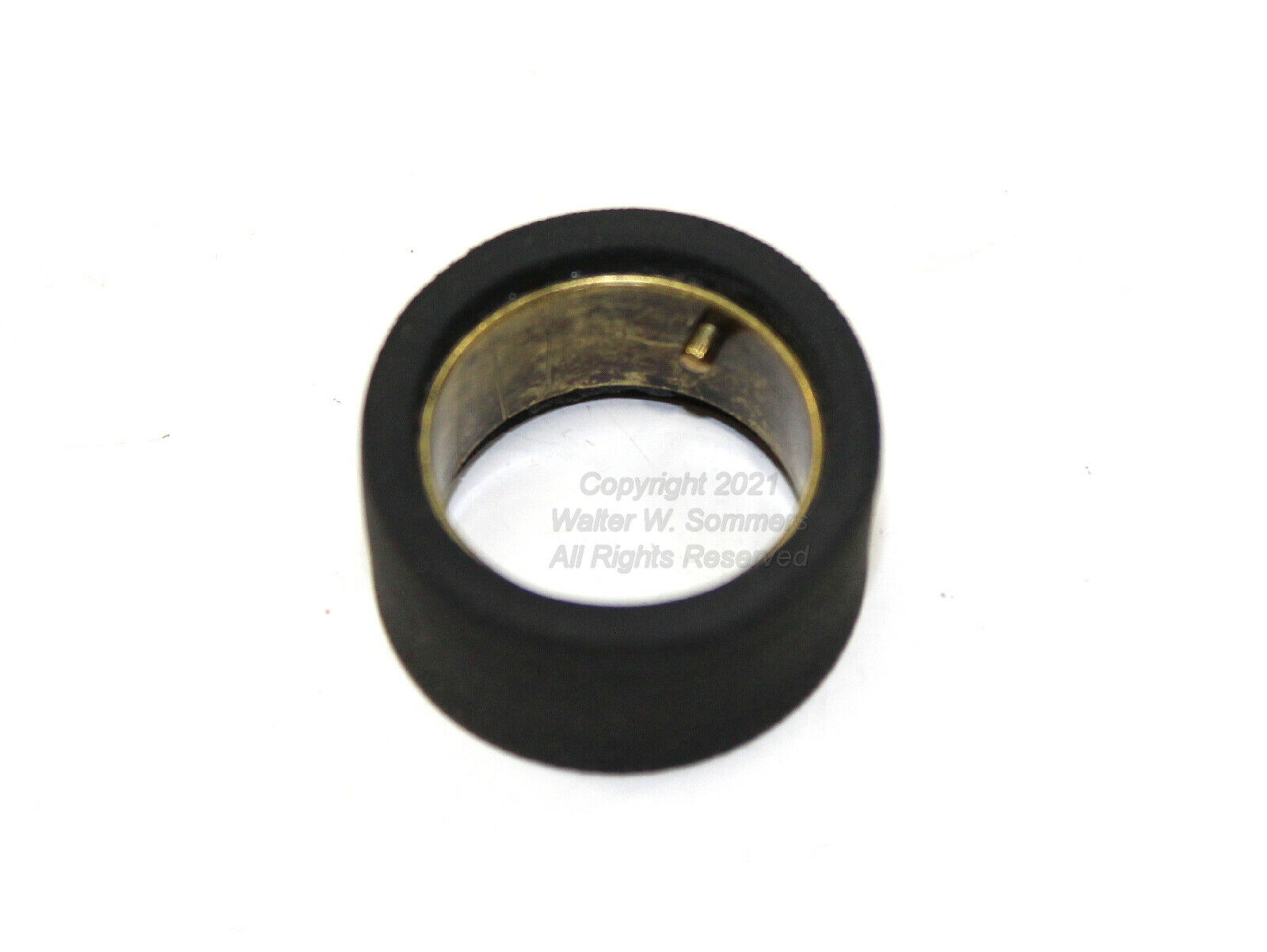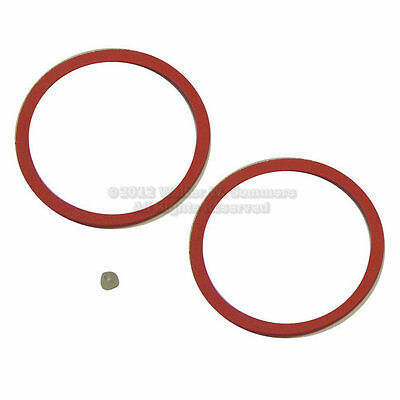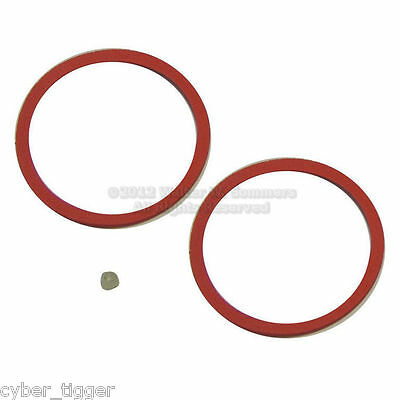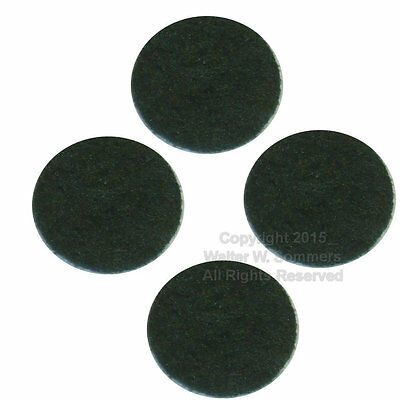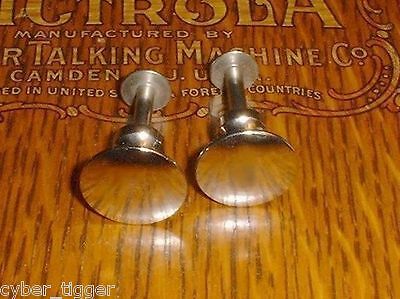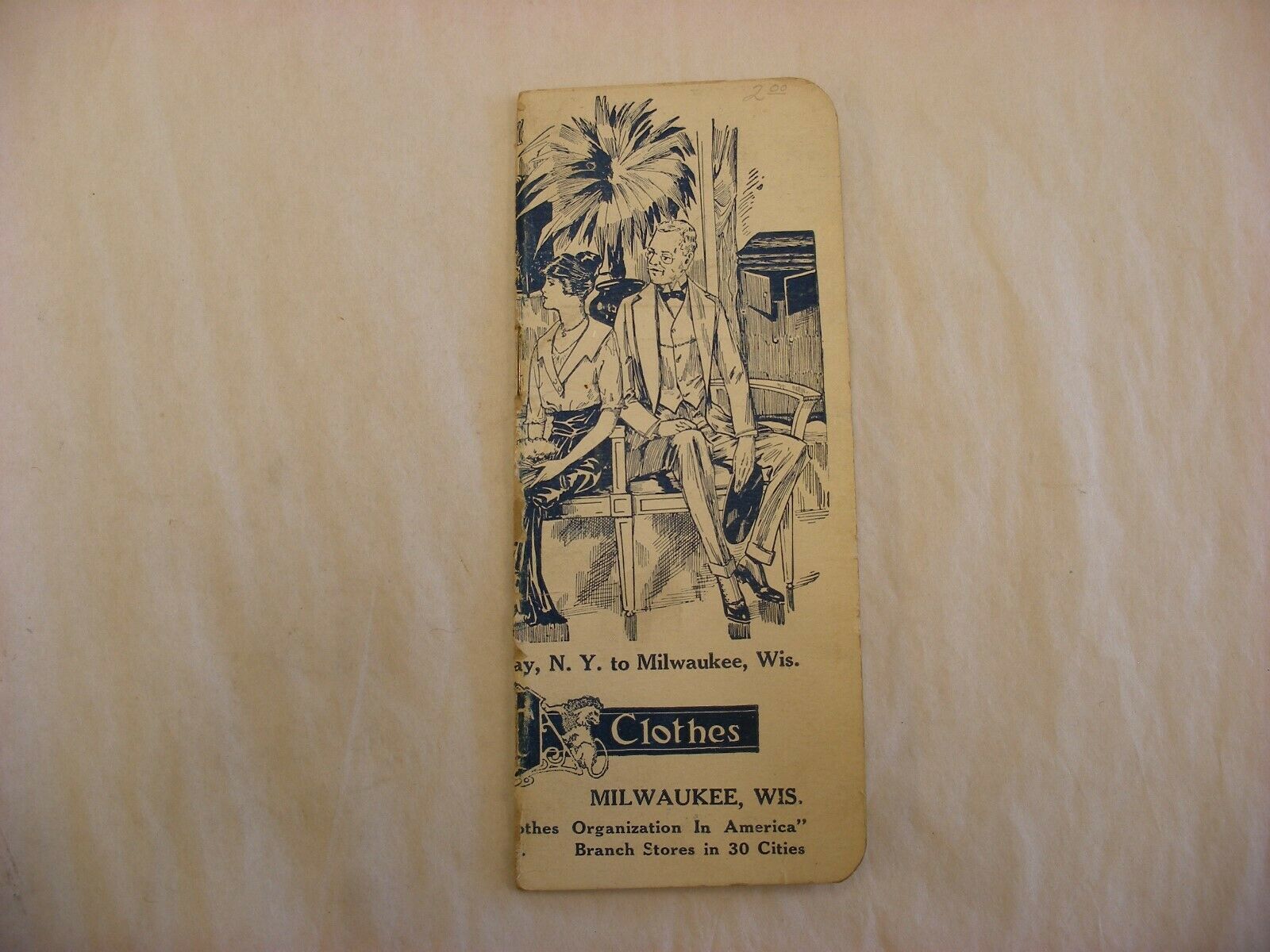-40%
Victor & HMV No.5/5A Orthophonic Reproducer Rubber Tone Arm Isolator/Rear Insert
$ 8.52
- Description
- Size Guide
Description
Victor Victrola and HMV Orthophonic No.5 and 5A Victrola Soundbox-ReproducerAlso fits HMV 5A and 5B (see notes below)
Rubber Tone Arm Isolator with Brass Insert
Ready To Install
(Reproducers shown in pictures are for example only and are not included.)
Most Victor and HMV Orthophonic Reproducers in original condition require replacement of this gasket because most of them are as hard as a rock, cracked or loose. Old original isolators are actually very easy to replace and do not require any special tools. Careful use of a simple heat gun set to low or a common household hairdryer is all you need to warm, soften and then remove the old isolator in. We have safely removed thousands of isolators this way. NEVER use a torch as a heat source. The flame tip of a torch is much too hot and may severely damage your casting, especially if it is pot metal.
NOTE:
This isolator is installed into the rear flange on the back of your reproducer and is held in place using two set screws. It is designed to perfectly fit the Victor No.5 and 5A as well as the HMV 5A and 5B and others. Please note that the HMV may require an additional setscrew in order to mount this isolator. Ask questions is you have an HMV because you may have to use a different set screw that I can provide. The inside diameter (i.e. the brass portion) is designed to mount exclusively on (larger diameter) Orthophonic tone arms. These will NOT fit pre-Orthophonic era tone arms. Ask questions is you need help and do not assume anything.
Important Tip: A hardened or mushy rubber isolator, although it may still mount to your reproducer and seem to hang in there, not only reduces the performance of the reproducer but it is also hazardous to your records. The hardness of a rubber or other material is often specified using a parameter known as "durometer". During play, a good rubber flange, in part, helps the reproducer track the groove by absorbing some of the energy caused by inefficient needle and diaphragm movement during record play. When the rubber has either become hardened (durometer is too high) or mushy (durometer is too low) the flange cannot efficiently do its job. If it is too hard, then the vibrations caused by the needle during play cannot be dampened, tracking is poor, and because of the mass of the large tone arm, vibrations are ultimately transmitted back to the needle tip where they inflict damage (cut) in the groove walls. If the rubber is too soft, excessive movement of the reproducer body (tilting) results which not only causes poor tracking but also damages the groove walls. We figured it all out so you don't have to!
Please observe the quality of the parts that we are selling. Even though you may be happy to just find anything that seems like it will work because yours is missing or busted, take a minute and examine what you are buying.
